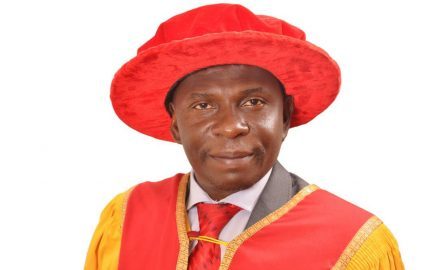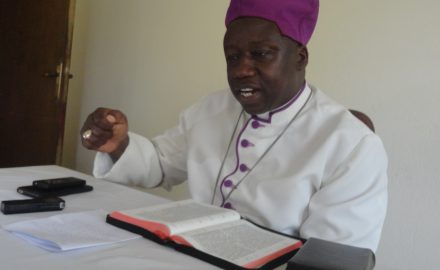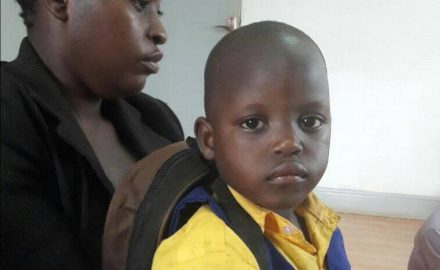OPINION: THE ROLE OF ELITES IN REALIZING UNITY IN DIVERSITY
By Dr. Mesharch Walto Katusiimeh(PhD)
Vice Chancellor Ankole Western University
Introduction Social media of late has been awash with divisive conversations and I know all of us are concerned because the consequences can be grave and disastrous beyond what we imagine.
As leaders we do countless things as part of a day’s work. Along with all that we do, we have another job—keeping the people we lead united and focused to the goal well knowing that if we keep united we “move mountains”! But the task has always not been easy because whether knowingly or unknowingly, some elements in society always want to promote divisions and disunity for their own selfish purposes. Rt Rev Johnson Twinomujuni once said that “…in our efforts to grow……, let us ask the Lord to keep us away from selfish and egocentric desires and aspirations……” In this paper, I will address the concept of “diversity”.
Where is the problem? What are the different kinds of divisions? Whom do we want to live and work with? How should we manage our differences? How do we ensure unity in diversity? First, let us understand the problem at stake.
Where is the problem? Since the close of World War 11, the most frequent arena for violence has not been wars between sovereign states, but rather internal strife tied to cultural, tribal, and religious or other ethnic differences. For example, any listings of the world’s most brutal wars since 1980 would include ethnically based confrontations in Rwanda, Burundi, Sudan, Liberia, Bosnia, Lebanon, Kenya etc.
In Uganda, we have had our own share of confrontations resulting in the death of many people. The violence has been related to the different types of ethnic-cultural divisions that I explain below. (a) Nationality/Tribe: This refers to a population with its own language, cultural traditions and historical traditions.
It is frequently associated with the belief that the “interests and values of this nation, tribe or ethnicity take priority over all other interests and values”. As opposed to other types of ethnicity nationalities/tribes often claim sovereignty over a specific geographic area. (b) Race: Race is usually the most visible type of ethnic division within society.
South Africa in the apartheid regimes experienced serious divisions that blacks were seen as not fit to be in leadership positions for long. (c) Religion: The likelihood of conflict between religious groups is influenced by at least two important factors; the extent to which one religious community feels dominated by another and the degree to which either religion believes that it represents the only true faith, making alternative theologies unacceptable. (d) The political/administrative boundaries.
Of late we have added on the Forth – the political divisions/administrative boundaries escalated by the policy of creating new districts. Now all over Uganda, we see a tendency to want to localize institutions and the widespread feeling in some circles that those from other districts are not ‘important’ or are ‘exploiters’ and should go back to the districts where they were born. In some quarters they call it ‘soilization’ forgetting that the so called ‘outsiders’ historically are one of the drivers of economic growth and development. The divide and rule tactics have become so prevalent in our times to the extent that that some people may not want to associate with others for fear they will be branded belonging to some ‘rival faction’!
Sometimes imaginary enmity is created by those in leadership for selfish reasons for the purpose of attaining office and for those in office to consolidate themselves in power but with disastrous consequences for the unity and development that we all cherish. The main problem has always been politicizing the differences and not focusing on what can bring us together!
In other words clans, tribes, religion, geographical boundaries do not generate conflict and destruction in itself. It is the politicization of these differences that breeds conflict and destruction.
Warlords and leaders may manage to consolidate their authority, but only after sending millions of innocent people to their deaths and instilling a fear of renewed conflict in the hearts of their people.
Unity is the most influential factor in solving the cultural and social problems.
It infuses respect amongst people irrespective of their religious, ethnic, racial, cultural and geographical differences. However, there are some elements who try to corrupt us by their behavior and activities, yet we remain united. It is the force of our motherland, which give us so much of strength and tolerance to accept the adversity and promote ‘Unity in Diversity’.
Unity in diversity means the integration of differences; it means the oneness or togetherness in spite of the presence of diverse o
Dr. Mesharch Walto Katusiimeh (PhD) is the Vice Chancellor Ankole Western University.
Source: www.mknewslink.com; a western Uganda news website.
Email: wmuhwezi75@gmail.com
Tel:+256702680106.















 Views Today : 84
Views Today : 84 Views Yesterday : 411
Views Yesterday : 411 Views Last 7 days : 3278
Views Last 7 days : 3278 Views This Month : 10333
Views This Month : 10333 Total views : 1447937
Total views : 1447937 Who's Online : 0
Who's Online : 0 Your IP Address : 18.119.123.10
Your IP Address : 18.119.123.10